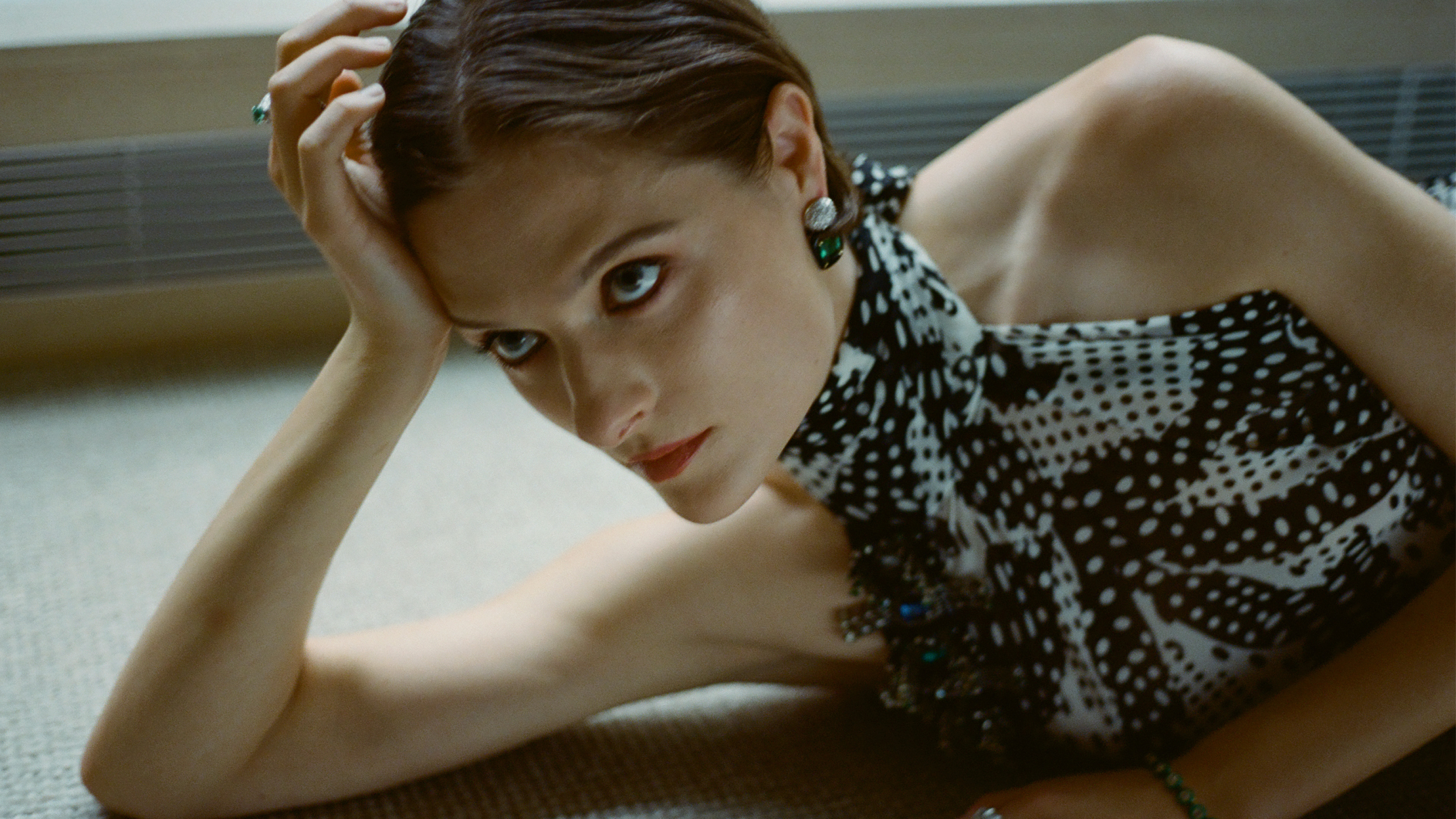Louisa Jacobson is here, there, everywhere—at the movies in Celine Song’s buzzy new rom-com Materialists, on your TV screens in season 3 of HBO’s Emmy-nominated period drama The Gilded Age, and now onstage in the off-Broadway production of Emmanuelle Mattana’s Trophy Boys. Range? Yeah, Jacobson has it, making her one of the most exciting next-gen talents coming up today.
Getting to play vastly different characters in three different projects all coming out within a few days of each other feels like a gift to Jacobson. It’s not often budding actors get to flex their acting muscles in such an expansive way so early on in their careers. Though she’s barely had time to soak it all in between back-to-back press runs for Materialists and The Gilded Age and previews for Trophy Boys, the rarity of this moment isn’t lost on her.
The daughter of Meryl Streep and sculptor Don Gummer and the youngest of four siblings with careers in the arts, Jacobson was literally born to do this, and it shows in her electric performances, whether it’s a young woman subverting 19th century societal norms, a bride-to-be questioning whether marriage is really for her, or a confident adolescent boy navigating the pressures of masculinity and gender norms.
On a Monday morning in late June, we met with Jacobson to talk about her momentous summer.
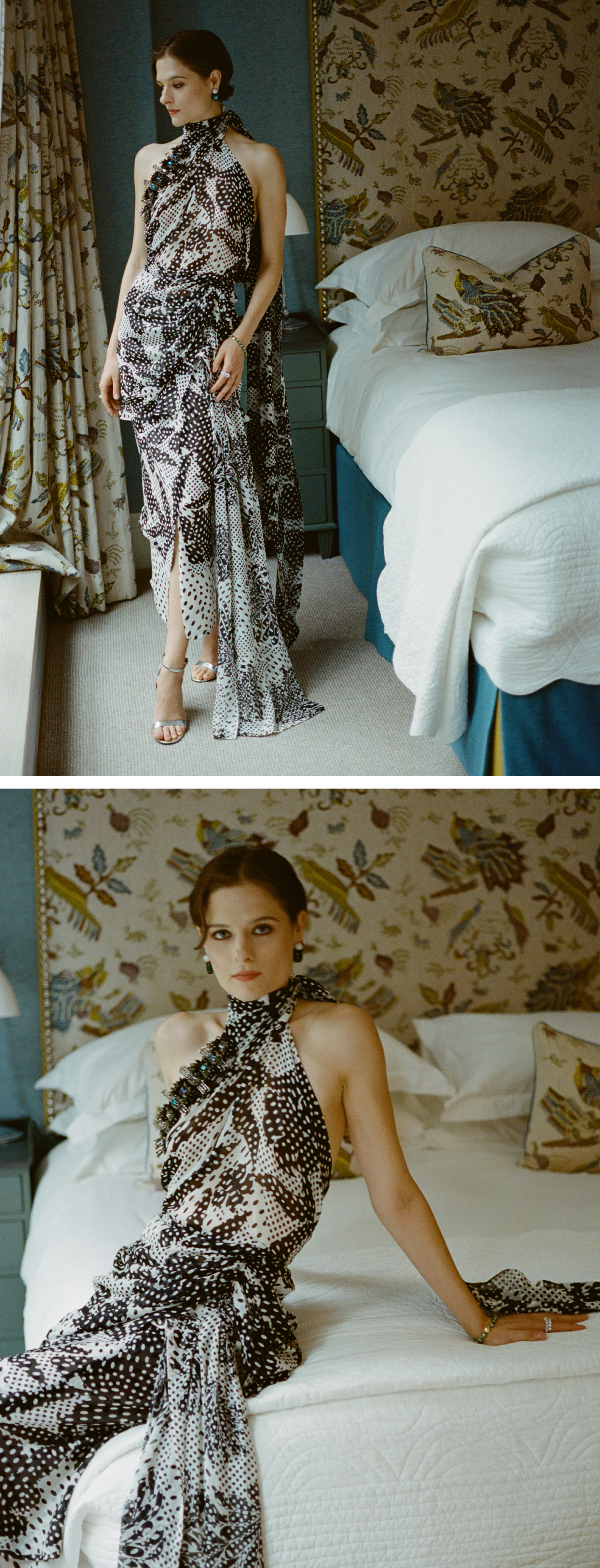
In June alone, you starred in three vastly different projects both tonally and in medium (film, TV, and theater). Can you tell me a little about your approach when taking on new projects? What really matters/speaks to you at this stage in your career?
I’m still in the stage of my career where I have to audition for every single thing, and as an actor, you don’t have so much control over what you do next, and you’re always like, “When’s my next job gonna be?” So it feels sometimes weird to be choosy when you’re like, “I’ll take any opportunity that’s coming at me,” but I generally know that it’s worth a shot at auditioning if the material jumps off the page to me and if there are sparks of creativity that are happening in my brain when I’m reading it. Usually, things like that are really honest and boundary-pushing portrayals of life and the things that we either choose not to look at or can’t see, which is what I loved about Celine Song’s movie [Materialists]. She’s such an honest filmmaker, and her sense of humor is so grounded in the tragedy of being human. I’m also into looking out for queer stories, particularly queer women’s stories. I’m into spreading the word about that and telling those stories more because I think they need to be told.
You grew up in a fine arts household. How did being the youngest sibling influence your decision to go into acting?
It was such a gift to be surrounded by artists from a young age in my household. Even my brother pursued acting at a point in his life but chose music instead, and my dad’s a sculptor. Both my parents were very talented, driven, and really dedicated to their crafts, so it was inspiring to grow up in a household that really prioritized the arts and took the arts seriously as a vocation. Because of that, our imaginations were always firing at crazy levels. Play is essential. It’s at the root of theater, and we were constantly engaging in that kind of imaginary play, whether it was playing dress-up together and then putting on a show. I mean, we went as far as to charge tickets at the door. We had box office systems. It was really amazing. I’m five years younger than my sister who’s the closest in age to me. So they were always in charge, but I loved it. It was just such a brilliant and inspiring way to grow up, and that never left me. It just stayed. When you’re so young and you are doing that so early, it doesn’t go away. The appreciation for it never fades. It didn’t for me.
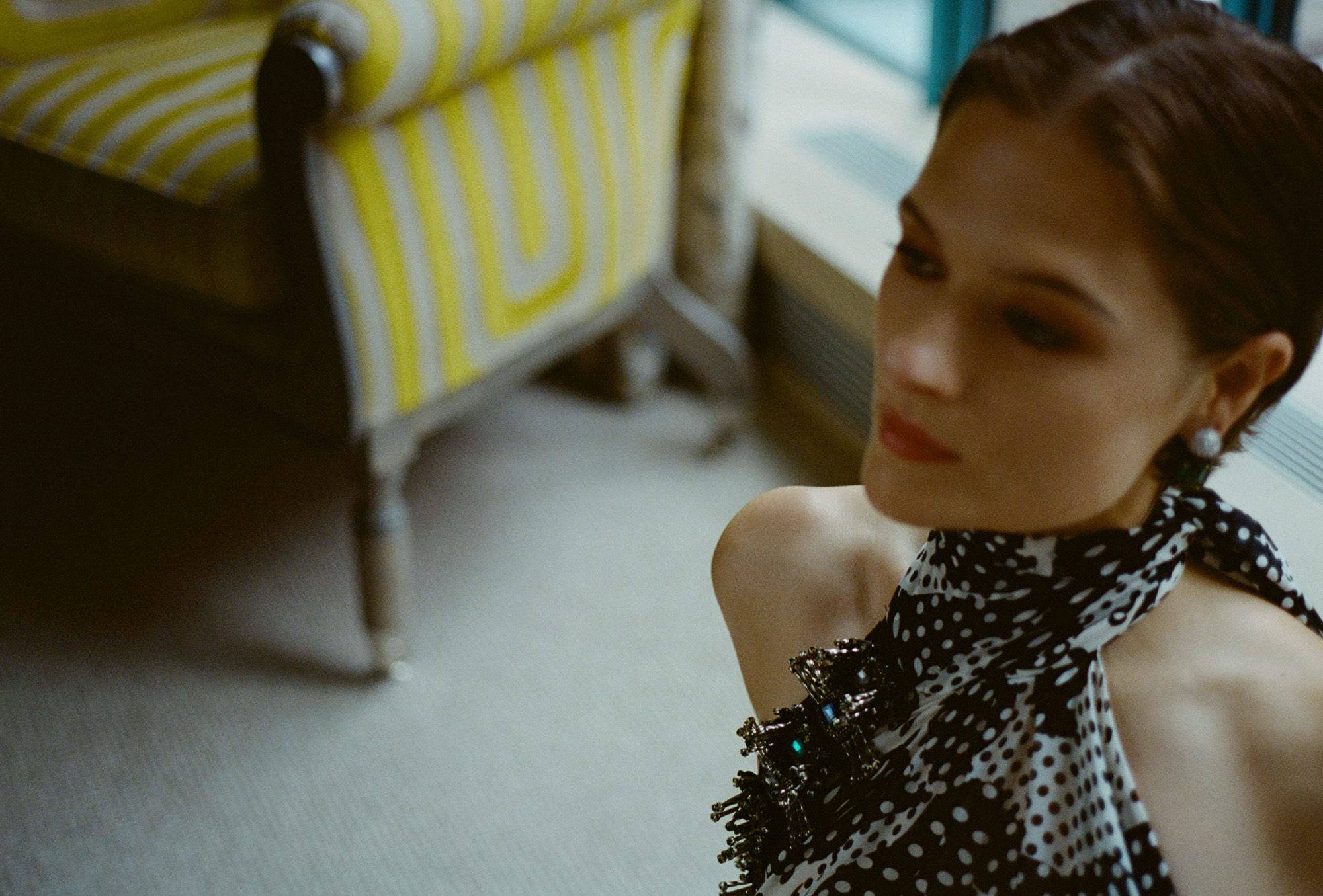
You started your professional career in theater before making the leap to screen acting in The Gilded Age. Why did that feel like the right moment/project to make that change? How was that for you in terms of your experience as an actor?
I graduated drama school in 2019, and I was doing Romeo and Juliet at the Old Globe right after I graduated, which was such a beautiful production and such an amazing thing to be able to do. To play Juliet, it’s like a dream role. I was doing that, and I got an audition for The Gilded Age. It’s expected that you graduate and you just try to find the work where it is. It doesn’t really matter whether it’s onstage or on-screen or anything like that. I think the decision to choose to audition for The Gilded Age was kind of a no-brainer. I was extremely excited by the fact that it was Julian Fellowes. I was such a Downton Abbey fan when it first came out. I watched that show religiously, and I didn’t really know anything about this time in history about New York, which is crazy because it was really when the city, as we know it, was built and forming. So of course, I’m going to audition for this.
I finally landed the role in September of 2019, and we were supposed to start filming March 2020. [Because of the COVID-19 pandemic], it was basically a full year from when I was cast and when we began shooting. I think the pandemic was an interesting way to experience my first TV show. It came with a lot of challenges, but those challenges were quite fruitful, and it’s just been such a master class really.
Jonathan Bailey once told me that returning to the stage always felt like a creative reset for him. Do you feel similarly?
One-hundred percent. It’s totally grounding. … What’s wonderful about working on The Gilded Age is that all the actors are theater actors—most of them are. Even the ones who aren’t really, they still have this spirit of a theater actor. It’s such a vibrant community and a supportive one, and I think just having the opportunity to go back to that reminds me of the why of what I do and the communal aspect of it. The rigor, just the chance to use my body in space in this way, it’s so satisfying. Sometimes in TV, there’s a way it can feel… I don’t want to say restraining, but there’s a sense of control that is useful, especially on The Gilded Age because you have to abide by the rules of etiquette of the time and the rigid behavioral rules, and you have to stick to the script. To be able to be free within those tight realms is such a delicious challenge.
I think it primed me to be able to continue to do theater and continue to step into the film arena. It requires such technical prowess that is helpful. But theater is such a grounding place. I love going back to it. I assistant-directed my friend’s play last year at the Vineyard, Invasive Species, and even just being involved on the other side was so wonderful to get back to that community aspect of acting.
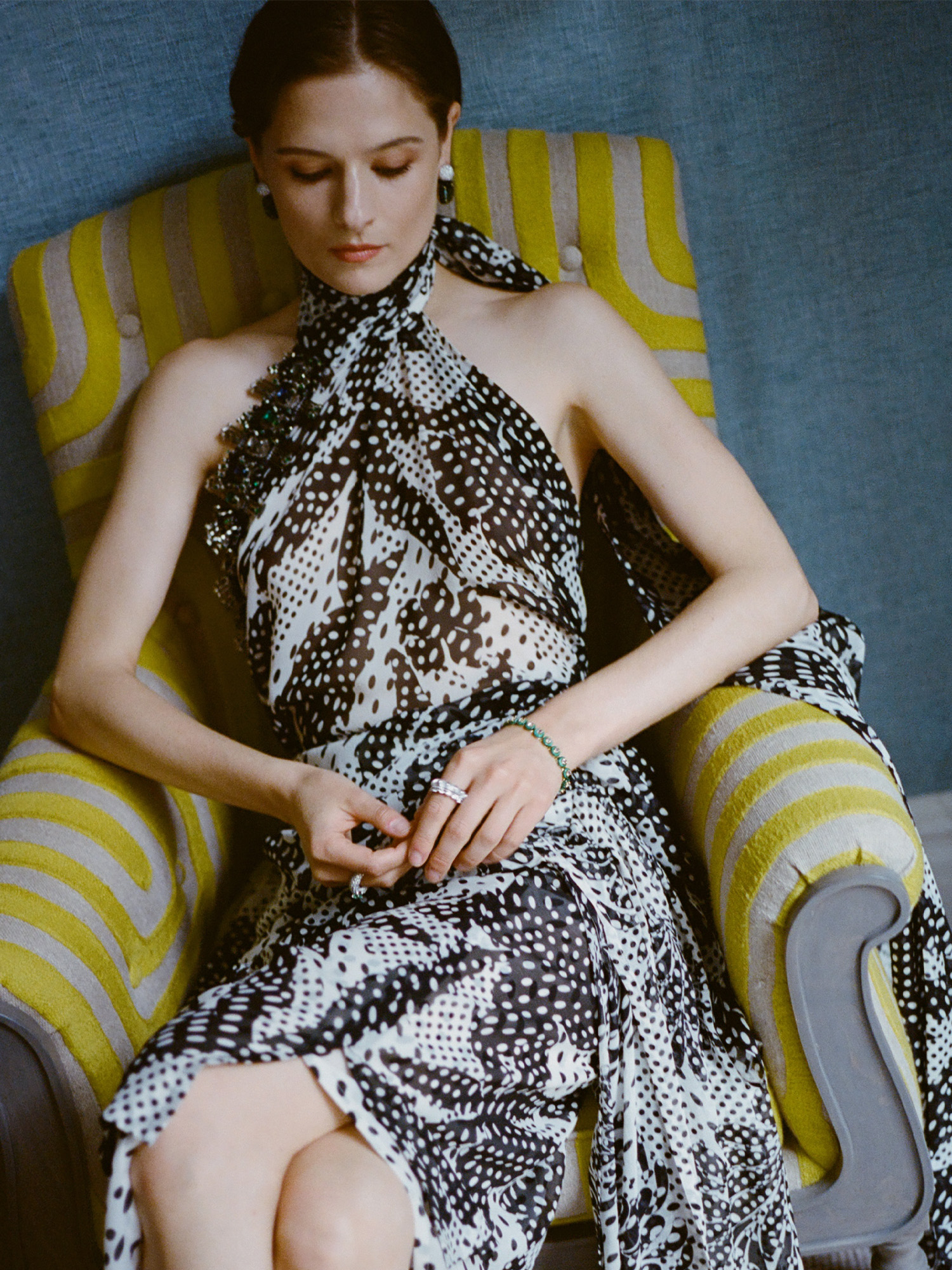
Three seasons into The Gilded Age, what has playing Marian taught you about yourself?
I think that there are parallels between Marian and I. She’s grown so much, and likewise, I feel I have as well. I mean it’s kind of perfect that I went into it so green because she was coming into New York so green, so wide-eyed, so new to it all. So season 1, she’s more naïve and unsure of herself. She’s trying to find her place in the modern, new world, this city. But now, when we meet her in season 3, she’s more grounded and confident in her choices. That’s partly because she’s been tested emotionally and socially. Through those experiences, she’s developed a stronger sense of self, and she’s no longer looking for other people to define her path. She’s starting to just trust her own instincts. I think that I can relate to that a lot in my own journey from graduating drama school to getting to where I am now.
Who have you grown closest to on the series?
Oh, gosh. I mean Denée, I absolutely love her. She’s a really important person in my life because we’ve gone through that show together during such wild times—with the pandemic and with the [writers] strike—so we’ve navigated rough waters together in that way. Ben Ahlers, who plays Jack [Treacher], and I met in… I want to say it was 2017 or 2018 at the Williamstown Theatre Festival. We were doing a play together, and over the summer in 2019, he texted me, and he was like, “Hey, I just got out of this audition for this HBO series called The Gilded Age, and they’re still casting Marian, and I think you would be really good for it.” I was like, “Well, funny enough, Ben, I just got out of my second callback, so keep your fingers crossed.” And then we both ended up getting cast in it, and it was just one of those brilliant, lovely moments. We’ve been able to hone in on our friendship and get tighter and tighter, and he’s just so lovely. I love him so much.
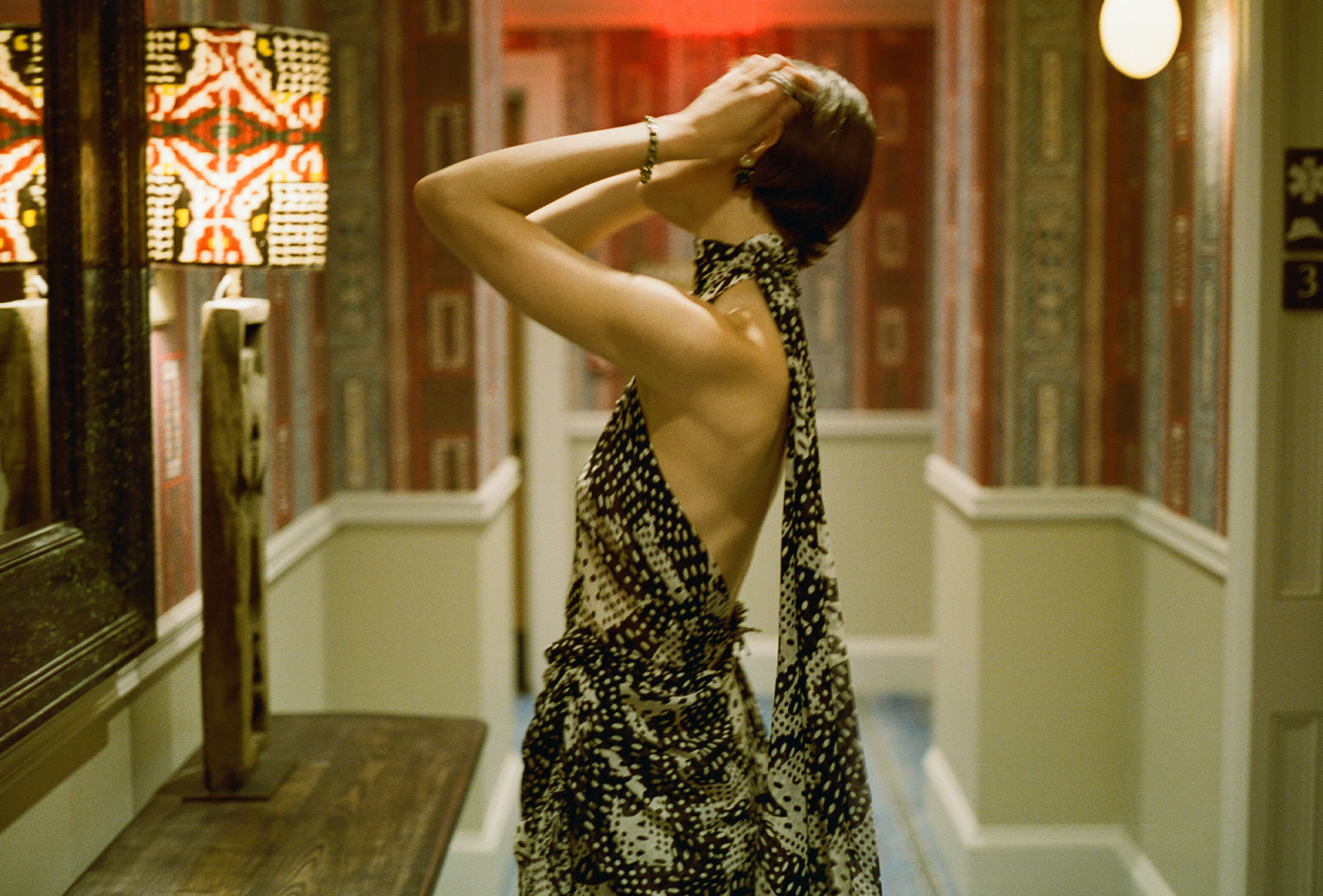
We have to talk about Materialists. It seems the ending has many people upset. What is your take on that? What do you think it says about modern dating and gender relations today?
They’re up in arms. Oh my God, that’s so funny. I mean, I get it. I think we want to walk away from a movie, a story being like, “That makes sense to me. That’s clear. That’s the morally right choice, or that’s the one that makes the most sense on paper.” But I think it’s more interesting to walk away from a project being like, “Well, that wasn’t really tied up in a neat bow necessarily, and it’s making me think about my own choices.” I’m thinking about the questions that are on my mind when I’m considering committing to somebody, and I think we don’t want to look at those things within ourselves, but we have to, and maybe that’s what people are angry about. They’re not confronting their own stuff.
Exactly. It’s good to be challenged sometimes.
It’s like Trophy Boys. It doesn’t end tied up neatly in a bow. It leaves you, I think, uneasy because you don’t know how to feel. We want to be told how to feel, but I think it’s way stronger storytelling if you have to figure that out for yourself. Also, the funny thing about Materialists is I feel like Charlotte, my character in that movie, is as if Marian was transported from 1883 to 2025. When I got that role, I was like, “Am I going to be typecast?” It’s like women who don’t know if they want to get married or they are having doubts about marriage, like serious cold feet. It’s funny because even in 2025, you see a woman is like, “Why am I choosing to marry a man? I can do anything else with my life. Why am I doing this? Why am I still following this traditional path, and am I doing it because that’s what people do?” It’s so fascinating.
When you think about marriage and courtship in The Gilded Age period, it was strategic. It was a business transaction, especially in upper-class circles, and love was just a bonus but not a priority. There were so many unspoken expectations and social roles that dictated who you could marry and be with and choose and how quickly and under what terms, and women had very little agency. Marian struggles so hard against that. She wants to choose love, not convenience, not status, which is a bold position to take in that era, and I don’t think Charlotte is that different.
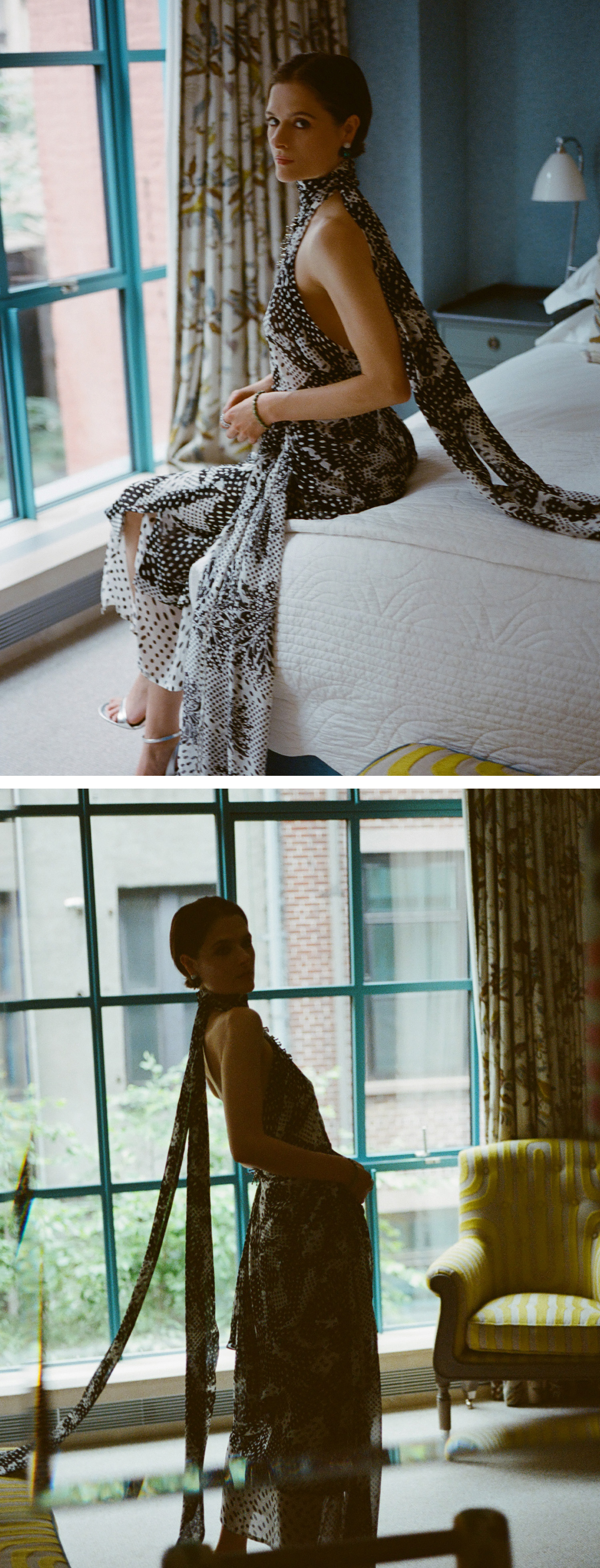
What was it about Celine Song’s approach to the rom-com that really spoke to you?
I thought it subverted the expectations of a rom-com, and I think that was really interesting, and obviously, I love Celine Song. I watched Past Lives four times when it came out, and I was really happy that that made the award circuit, too, because it’s complex, but it’s a relatable and accessible story about love and lost love and past love and what it means to immigrate. It was about so many big things but through such a tight story. Usually, it feels that the movies that get considered for awards have to be grand in gesture, but I think the fact that hers was considered was so cool because she specifically has such a skill in making really human stories and the emotional complexities in them feel very grand through simple, beautiful shots. Her DP is such a genius. I loved working with him.
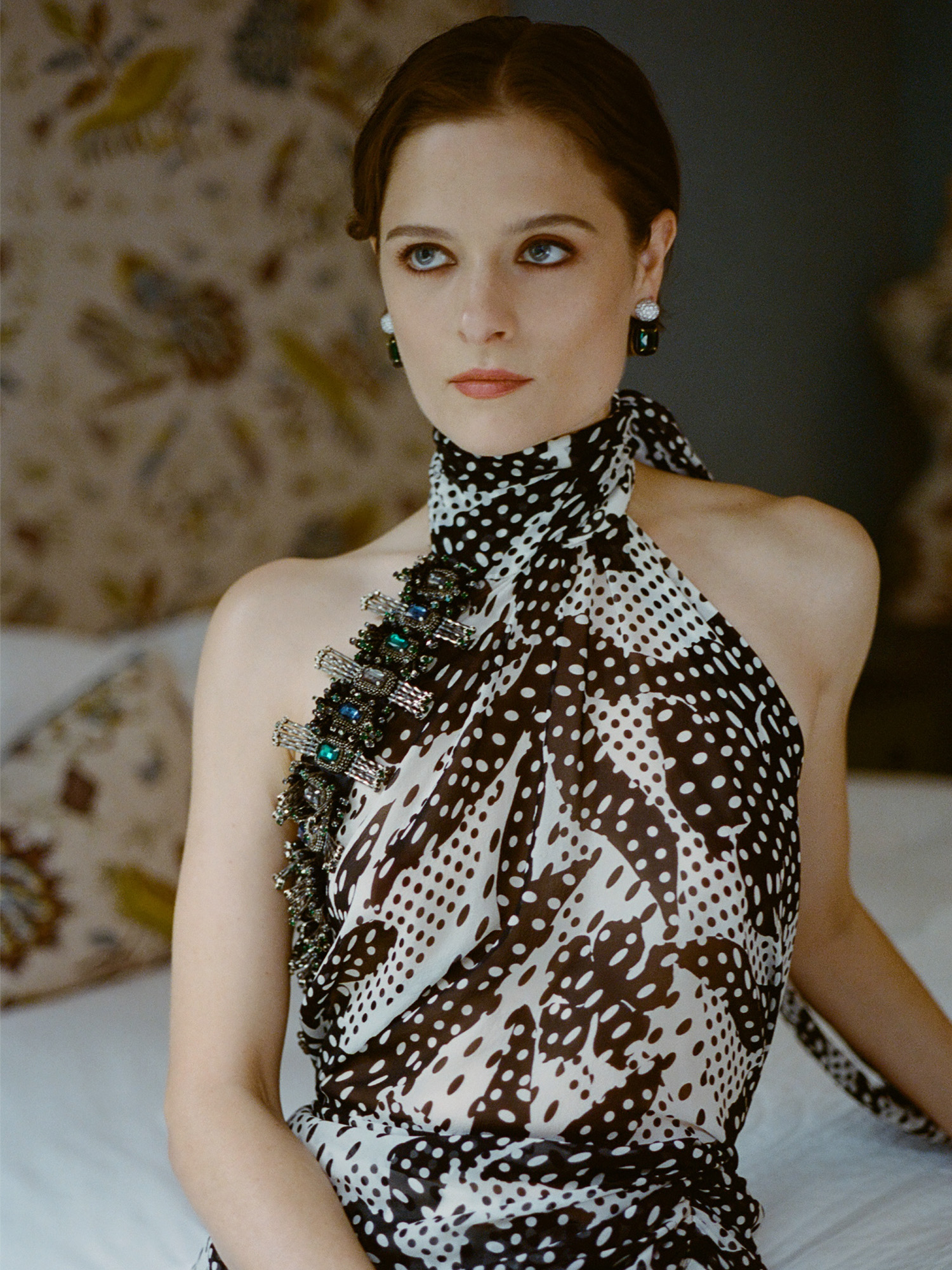
Shifting gears to your third project Trophy Boys, this is such an interesting show because it centers four young boys preparing for a final debate with the prompt “Feminism has failed women” and explores themes of entitlement, abuse, and pressures of adolescent masculinity but is portrayed by queer women and/or nonbinary actors. As a queer woman yourself, what do you appreciate about the use of queer and nonbinary actors in these roles?
I think it’s really great because we’re very used to seeing drag with male-to-female or assigned-male-at-birth-to-female drag, and that’s very, at least in New York and in our circles, it’s a very familiar genre. So I think it’s exciting because we don’t normally see that drag flipped. I was so ready to be involved in that. I just want more of that, generally. In the play, we’re essentially doing drag, so in that sense, it’s a playful exploration of gender as performance through repeated acts. I mean, we’re literally repeating the same acts every night, but of course, it’s also a very sharp criticism about gender constructs. I think it’s through the drag of this play that we understand the scary, real-world consequences of masculinity and femininity as well, and it’s those constructs and their ability to uphold harmful patriarchal systems.
The subversion exists not just in the casting but also in the mixing, the structure of the play—particularly its combination of stylized comedy with stark realism. It really pushes boundaries and subverts expectations for what the audience… They think they’re going in and seeing one thing, and then they’re like, “Oh my God, I didn’t know I was going to see that.” So the effect is very harrowing, and I’ve had many people say after the show that we forgot you weren’t actually boys, which is such a fascinating takeaway and further supports this theory about gender as performance. Basically, it’s such a cool opportunity to expand into masculinity, to play with these gestures that boys do. It’s so satisfying. It’s so fun to put that on as a costume and embody it.
Also, the character, because he walks through the world and doesn’t think twice about the space he takes up, he just walks through and has no doubts about his talent and his ability and what he can bring to the world. He’s just so confident. I’ve just loved playing somebody like that because it requires me to take up space and be confident, and the result is really thrilling. The play is continuing to teach me that there’s no such thing as a fixed, inherent gender, masculinity and femininity—everything in between those two things exists in all of us all the time.
Catch Jacobson onstage now in Trophy Boys, streaming on HBO in The Gilded Age, and in theaters in Materialists.
Photographer: Hedi Stanton
Stylist: Edward Bowleg III
Hairstylist: Clara Leonard
Makeup Artist: Alex Levy
(Except for the headline, this story has not been edited by PostX News and is published from a syndicated feed.)

